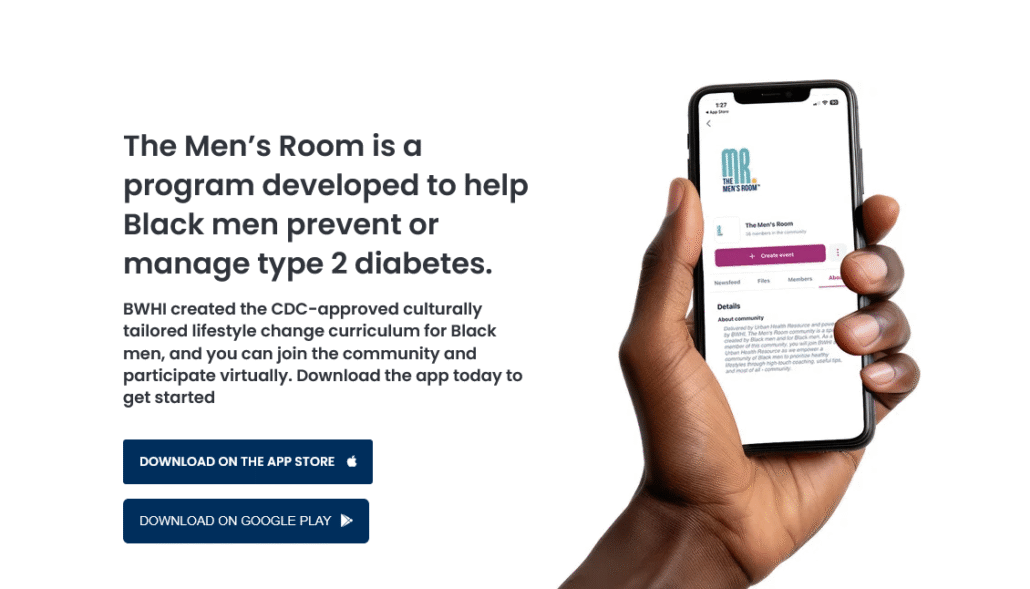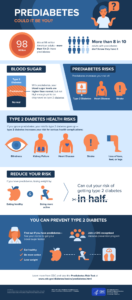“Managing diabetes whilst going through menopause
can feel like a twin challenge for most women due to
the combined effects that each condition can have…”.1
Umbrella
What may the Diabetes Umbrella include?
Depending on the Source (DotS) this Umbrella may include:
- Adult-Onset Diabetes
- Diabetes
- Diabetes Mellitus (DM)
- Diabetes Type 1
- Diabetes Type 2
- Type 1 Diabetes
- Type 2 Diabetes
Definition
What is diabetes?
DotS the definition of diabetes may vary. The World Health Organization’s (WHO) definition is:
Insulin
What is insulin?
DotS the definition of insulin may vary. The International Diabetes Federation’s (IDF) definition is:
When the body cannot produce or use insulin effectively, this leads to high blood glucose levels, called hyperglycaemia. Over the long-term high glucose levels are associated with damage to the body and failure of various organs and tissues”.3
Types
What are two common types of diabetes?
Two common types of diabetes are:
- Type 1 Diabetes
- Type 2 Diabetes
Type 1 Diabetes
What is type 1 diabetes?
DotS the definition of type 1 diabetes may vary. In Type 1 Diabetes the IDF’s definition is:
Type 2 Diabetes
What is type 2 diabetes?
DotS the definition of type 2 diabetes may vary. In Type 2 Diabetes the IDF’s definition is:
Because insulin cannot work properly, blood glucose levels keep rising, releasing more insulin. Unfortunately, for some people with type 2 diabetes, this can eventually exhaust the pancreas. As a result, the body produces less and less insulin, causing even higher blood glucose levels (hyperglycaemia)”.5
Type 2 Diabetes Cause
What may cause type 2 diabetes?
In Type 2 Diabetes: What Causes Type 2 Diabetes? Diabetes Australia elaborate on:
While people may have a strong genetic disposition towards type 2 diabetes, the risk is greatly increased if people display a number of modifiable lifestyle factors including high blood pressure, being overweight, not being active enough, eating a poor diet and having the classic ‘apple shape’ body where extra weight is carried around the waist”.6
Menopause
Is there an association between menopause and diabetes?
In Menopause and Diabetes the (United Kingdom) Diabetes.co.uk note:
The best way to remain in control is by knowing what to expect so that you can prepare yourself for the unique challenges that may lie ahead”.7
In Consumer Health: Diabetes and Menopause: Diabetes and Menopause: What To Expect the (United States) Mayo Clinic elaborate on:
In Consumer Health: Diabetes and Menopause: Diabetes and Menopause: What To Expect the Mayo Clinic also note:
 “After menopause, hot flashes and night sweats can keep you up at night. In turn, the sleep deprivation can make it tougher to manage your blood sugar level”.9
“After menopause, hot flashes and night sweats can keep you up at night. In turn, the sleep deprivation can make it tougher to manage your blood sugar level”.9Heart Disease
Is there an association between heart disease and diabetes?
In Menopause and Diabetes: How Can I Better Manage Menopause and Diabetes? Get Assessed for Heart Disease Risk Diabetes.co.uk note:
Ask your doctor about regular blood pressure and cholesterol screening as both health factors are important for controlling diabetes and heart disease risk, but can be affected by menopause”.10
Prevention
How may type 2 diabetes be prevented?
In Diabetes Prevention the IDF elaborate on:
In Prevention: Type 2 Diabetes Australia elaborate on:
People at risk of type 2 diabetes can delay and even prevent the condition by:
- Maintaining a healthy weight
- Regular physical activity
- Making healthy food choices
- Managing blood pressure
- Managing cholesterol levels
- Not smoking”.12
Health Care Provider
What if I think I have diabetes?
If you think you have diabetes, it may be in your best interest to choose to talk to your health care provider about this.
In Preventing and Treating Diabetes the American Heart Association explain:
- Blood sugar level
- Weight
- Blood cholesterol level
- Blood pressure
Taking these steps may also help prevent serious complications that can arise from diabetes”.13
Health Topics A-Z
Where may I find Health Topics A-Z related to Diabetes?
In Health Topics A-Z you may find:
Links
Where may I find Links related to Diabetes?
Your Country may have Links similar to:
Links
This Links List to third party websites is neither comprehensive nor exhaustive. Inclusion on this Links List does not imply endorsement or recommendation. Non-inclusion on this Links List does not imply non-endorsement or non-recommendation. Third party websites are not under the control of Meno Martha International Menopause Directory. Third party websites may contain explicit medical images and/or sexual references. Please read Meno Martha International Menopause Directory’s Links Policy before proceeding to a Link. Please contact Webmaster if you experience a problem with a Link.New or Updated
- 9 Best Nuts for People With Diabetes
- About Diabetes
- Alcohol and Diabetes
- Are You Experiencing Depression?
- BMS TV: Menopause – Weight Gain, Nutrition and Lifestyle
- Black Women’s Health Imperative Releases 2022 National Diabetes Agenda
- CYL2 Change Your Lifestyle. Change Your Life [+ Video]
- Can Too Much Sugar Cause Diabetes?
- Common Terms
- Complications
- Consumer Video and Podcast Series: 2024 Consumer Videos and Podcasts – Preparing for Your Menopause Healthcare Visit
- Diabetes
- Diabetes
- Diabetes

- Diabetes
- Diabetes
- Diabetes
- Diabetes
- Diabetes and Endocrine Function
- Diabetes and Your Eyes
- Diabetes Basics
- Diabetes Care: 10 Ways To Avoid Complications
- Diabetes Complications and Risks
- Diabetes Information In Different Languages and Formats
- Diabetes Meal Planning
- Diabetes Mellitus [Topics]
- Diabetes Myths and Facts
- Diabetes Overview: What Is Diabetes?
- Diabetes Risk Factors
- Diabetes Type 1
- Diabetes Type 1 – Multiply Languages
- Diabetes Type 2
- Diabetes Type 2 – Multiply Languages
- Diabetes – Multiply Languages
- Diabetes.org [American Diabetes Association]
- Diabetes.org.uk [Diabetes UK [United Kingdom]]
- Diabetes: Diabetes Meal Planning
- Diabetes: Diabetes and Mental Health
- Diabetes: Diabetes and Smoking
- Diabetes: Diabetes and Women
- Diabetes: Digestion and Diabetes
- Diabetes: Fiber: The Carb That Helps You Manage Diabetes
- Diabetes: Get Active
- Diabetes: Diabetes Stigma
- Diabetes: Living With Diabetes
- Diabetes: Vision Loss and Diabetes
- Diabetesaustralia.com.au
- Diabetic Retinopathy
- Disability and Diabetes Prevention
- Does Eating Ham, Bacon and Beef Really Increase Your Risk of Developing Type 2 Diabetes?
- Does Menopause Increase Risk for Type 2 Diabetes?
- Doihaveprediabetes.org [Do I Have Prediabetes? United States]
- Food, Diet and Recipes
- How Stress and Depression Affect Diabetes
- How To Lower Your Blood Sugar Naturally
- How Walking After Eating Impacts Your Blood Sugar
- Idf.org [International Diabetes Federation]
- Information In Your Language
- Is Menopause Making Me Put on Weight? No, But It’s Complicated
- I’ve Been Diagnosed With Prediabetes. What Does That Mean?
- KnowDiabetesbyHeart
- Living With Diabetes
- Lose Weight for Good
- Managing Diabetes In the Heat
- Mayo Clinic Q and A: How Does Diabetes Affect the Heart?
- Mayo Clinic Q and A: Putting Your Best Foot Forward With Diabetes
- Menopause and Type 2 Diabetes: What’s the Link and How to Reduce the Risk
- Menopause and Diabetes
- Mensroom.bwhi.org [The Men’s Room, United States]

- National Center for Complementary and Integrative Health: Diabetes and Dietary Supplements: What You Need To Know
- National Diabetes Month 2024 [November]
- National Diabetes Prevention Program [United States]
- National Institute of Diabetes and Digestive and Kidney Diseases: Diabetes
- Nonhormone Treatments for Hot Flashes and Night Sweats
- Prediabetes Diabetes Risk Test
- Prediabetes – Your Chance To Prevent Type 2 Diabetes
 Prediabetes: Could It Be You?
Prediabetes: Could It Be You?- Preventing and Treating Diabetes
- Statins and Diabetes: What You Should Know
- Takediabetes2heart.com.au [TakeDiadetesToHeart]
- The Worst and Best Foods If You Have Diabetes
- Tips for Traveling With Diabetes
- Type 1 Diabetes
- Type 1 Diabetes: Let’s Fight Type 1 Diabetes Together
- Type 1 vs. Type 2 Diabetes: What’s the Difference?
- Type 2 Diabetes
- Unraveling the Link: A Comprehensive Literature Review of Type 2 Diabetes and Menopause Onset
- Vegetarian Diet: Can It Help Me Control My Diabetes?
- Videos and Podcasts: Videos – Menopause and Diabetes
- What Is A Healthy, Balanced Diet for Diabetes?
- What To Know About Berberine: Benefits, Uses and Side Effects
- What You Should Know About Glucose and Dextrose
- What’s the Connection Between Statins and Diabetes?
- Women and Diabetes [+ Video: How Does Diabetes Affect Women Differently?]
- Working With Your Diabetes Health Care Team
- World Diabetes Day [14 November]
- Worlddiabetesday.org [World Diabetes Day, 14 November 2025]

- Your Brain and Diabetes
- Your Heart and Diabetes
- Your Immune System and Diabetes
Sources
Where may I find the Sources quoted?
You may find the Sources quoted at:
Sources
- Diabetes and Menopause. Published: 15 January 2019. Updated: 29 October 2023. Diabetes.co.uk https://www.diabetes.co.uk/menopause-and-diabetes.html Accessed: 26 February 2025
- Diabetes: Overview. 14 November 2024. World Health Organization https://www.who.int/en/news-room/fact-sheets/detail/diabetes Accessed: 26 February 2025
- About Diabetes: What Is Diabetes. International Diabetes Federation https://idf.org/about-diabetes/what-is-diabetes/ Accessed: 26 February 2025
- Types 1 Diabetes. International Diabetes Federation https://idf.org/about-diabetes/types-of-diabetes/type-1-diabetes/ Accessed: 26 February 2025
- Types 2 Diabetes. International Diabetes Federation https://idf.org/about-diabetes/types-of-diabetes/type-2/ Accessed: 26 February 2025
- Type 2 Diabetes. What Causes Type 2 Diabetes? Diabetes Australia https://www.diabetesaustralia.com.au/about-diabetes/type-2-diabetes/ Accessed: 26 February 2025
- Diabetes and Menopause. Published: 15 January 2019. Updated: 29 October 2023. Diabetes.co.uk https://www.diabetes.co.uk/menopause-and-diabetes.html Accessed: 26 February 2025
- Consumer Health: Diabetes and Menopause. 16 November 2021. Mayo Clinic https://newsnetwork.mayoclinic.org/discussion/consumer-health-diabetes-and-menopause/ Accessed: 26 February 2025
- Consumer Health: Diabetes and Menopause. 16 November 2021. Mayo Clinic https://newsnetwork.mayoclinic.org/discussion/consumer-health-diabetes-and-menopause/ Accessed: 26 February 2025
- Diabetes and Menopause: Diabetes and Menopause: What To Expect. Published: 15 January 2019. Updated: 29 October 2023. Diabetes.co.uk https://www.diabetes.co.uk/menopause-and-diabetes.html Accessed: 26 February 2025
- Diabetes Prevention. International Diabetes Federation https://idf.org/about-diabetes/diabetes-prevention/ Accessed: 26 February 2025
- Prevention: Type 2. Diabetes Australia https://www.diabetesaustralia.com.au/about-diabetes/prevention/ Accessed: 26 February 2025
- Preventing and Treating Diabetes. Last Reviewed: 14 April 2024. American Heart Association https://www.heart.org/en/health-topics/diabetes/prevention–treatment-of-diabetes Accessed: 26 February 2025








